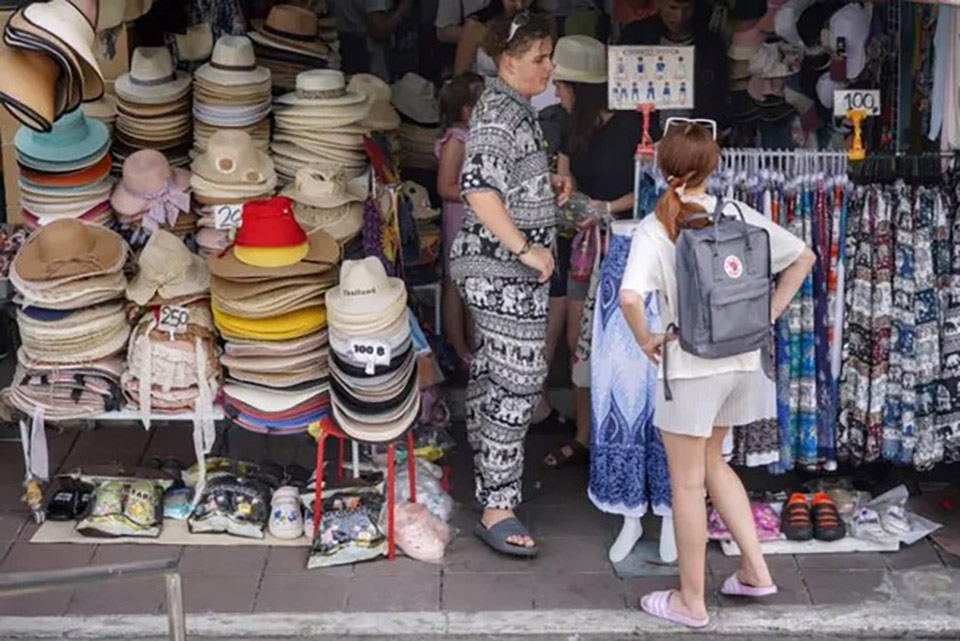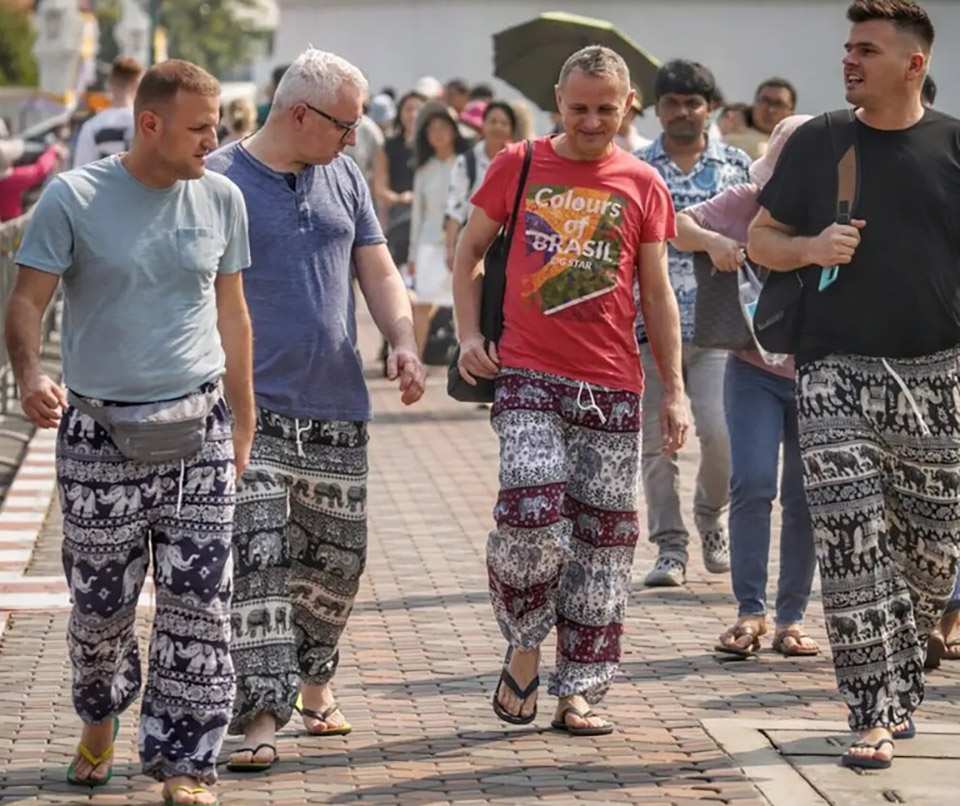
The influx of Chinese-made elephant print pants in the Thai market is seen as opportunistic trading that Thailand should learn from, said Prime Minister Srettha Thavisin.
It has become a dramatic issue due to the government’s soft power policy making elephant pants highly popular among tourists. However, Thailand is slower than China in the market, as most of the elephant pants, both wholesale and retail sold at tourists’ favorite shopping destinations are imported from China.
The recent information from a Facebook page “Luijeen” (Travel China) sharing news about Thailand and China states that on the Chinese wholesale website 1688, elephant pants are sold at 6 yuan each (30 Baht), and they sell well in large quantities.
For Thai producers and traders, the challenge is to sell at a competitive price. The question is raised how Thai factories can compete when Chinese products are manufactured at such low prices.
It seems difficult to compete with the cost, and the focus should be on the quality of the products. It suggests the Ministry of Commerce may consider giving the “Thai Select” label to certify the quality of elephant pants made in Thailand.
Meanwhile, this issue is not limited to elephant pattern pants; other products like cat pattern pants, a soft power fashion item from Nakhon Ratchasima province are also facing competition from Chinese imports.
The Prime Minister emphasizes that this is a matter of trade, and where there is an opportunity, there will be competition. The importance lies in protecting copyrights and acting quickly to seize trade opportunities. If Thailand delays, others will take the lead. This situation serves as a valuable lesson that needs to be discussed and addressed.
Meanwhile, Deputy Prime Minister and Commerce Minister Phumtham Wechayachai addressed the case of elephant-patterned pants, considered one of Thailand’s soft power items but the majority in the market were produced and distributed by a major Chinese private company at a lower price than Thai-made ones.
The copyright issue came to light after Prime Minister Srettha Thavisin interviewed with the media. In his capacity as Commerce Minister, Phumtham directed the Department of Intellectual Property to investigate and coordinate with the Customs Department to assess the market size and check if there are infringements.
It is now clear that the elephant-patterned or cat-patterned pants have existing intellectual property rights. However, the production style from China may differ from the original design, requiring a closer look at the extent of legal coverage.
Therefore, discussions with the Customs Department, empowered to regulate foreign imports, have taken place. Every customs checkpoint has been instructed to control these products, and the Department of Trade Promotion is working on quality control measures, such as introducing symbols or logos to indicate that the products are genuinely Thai. This aims to support local products with better quality. Those made in China and sold at much cheaper prices may not meet the standard and not durable. (TNA)









